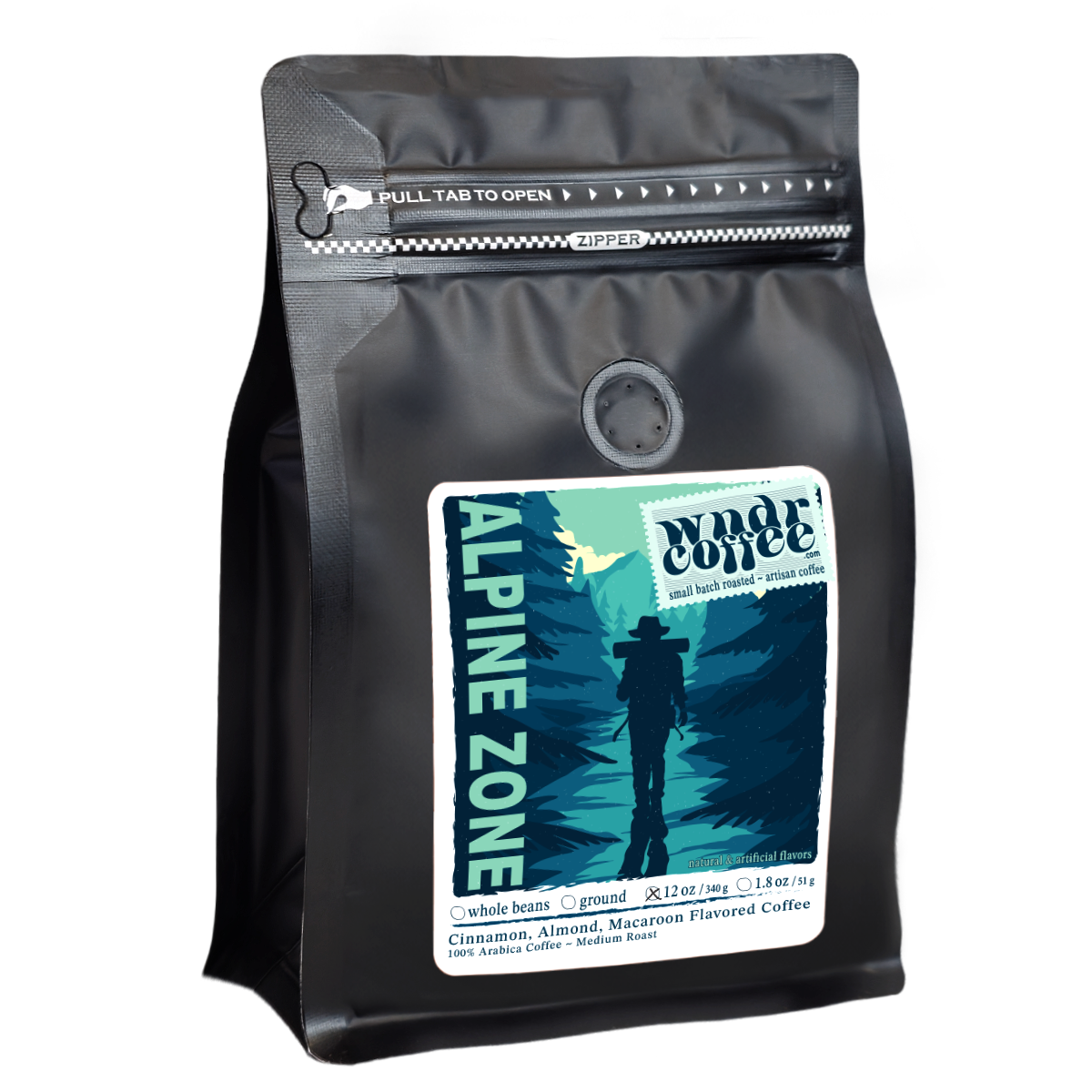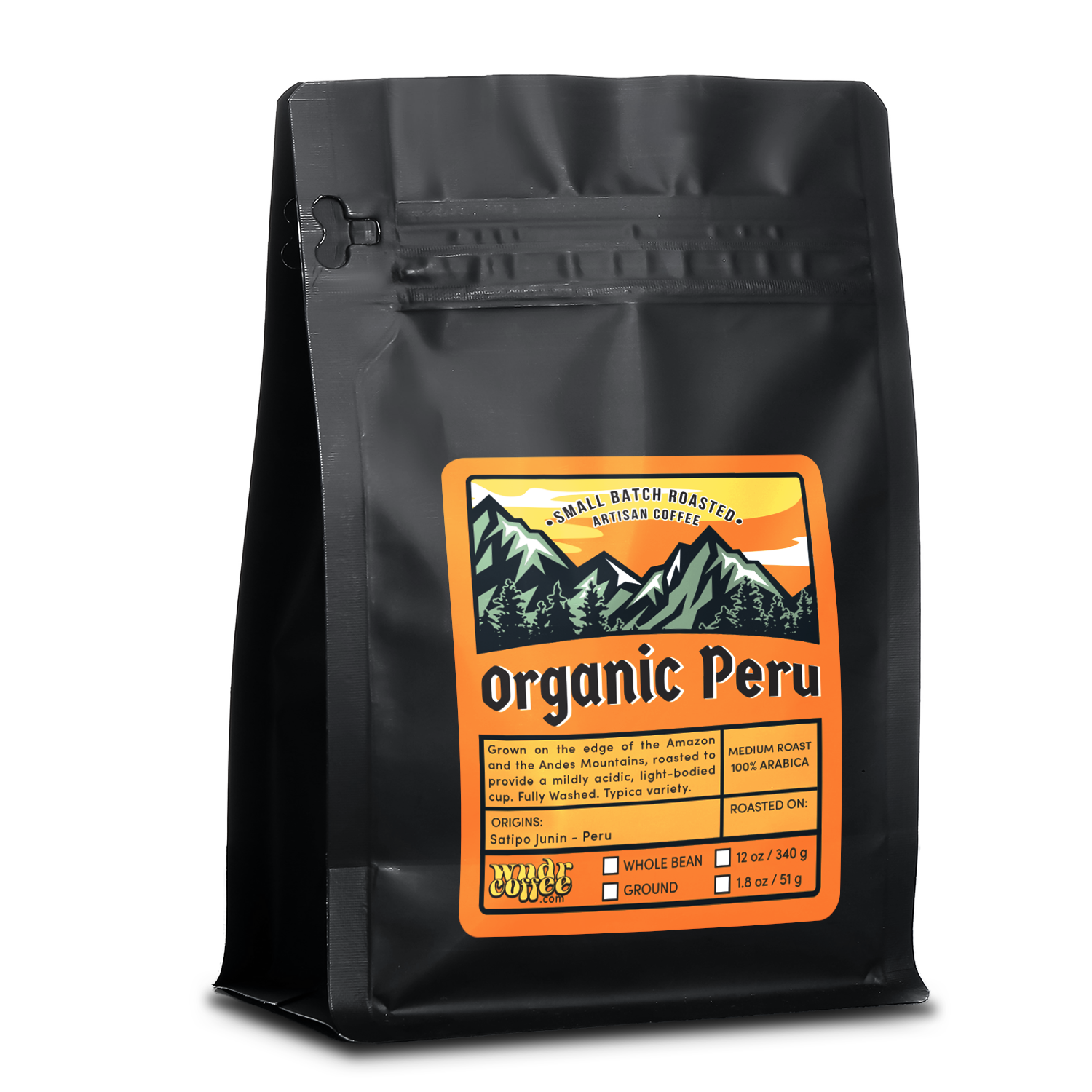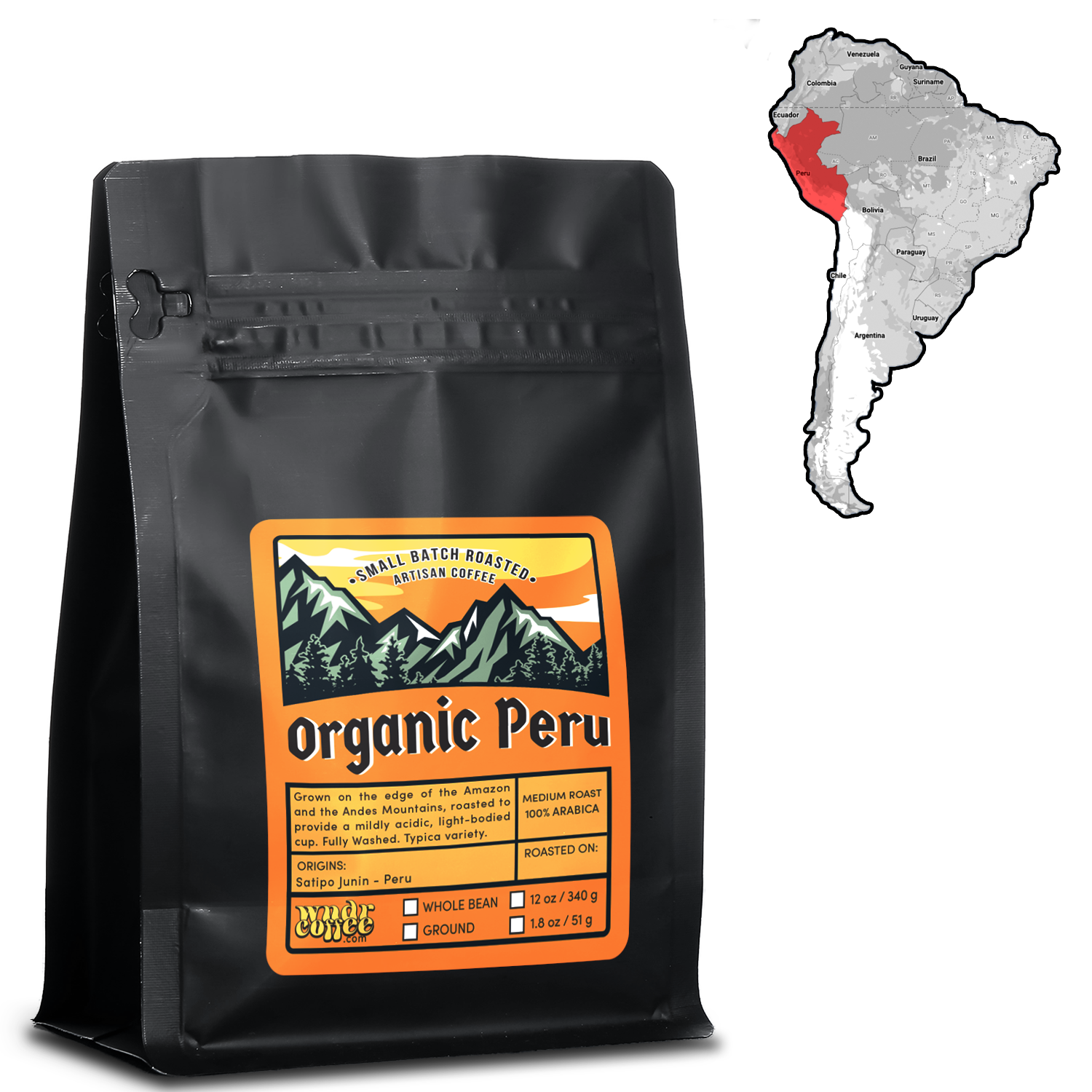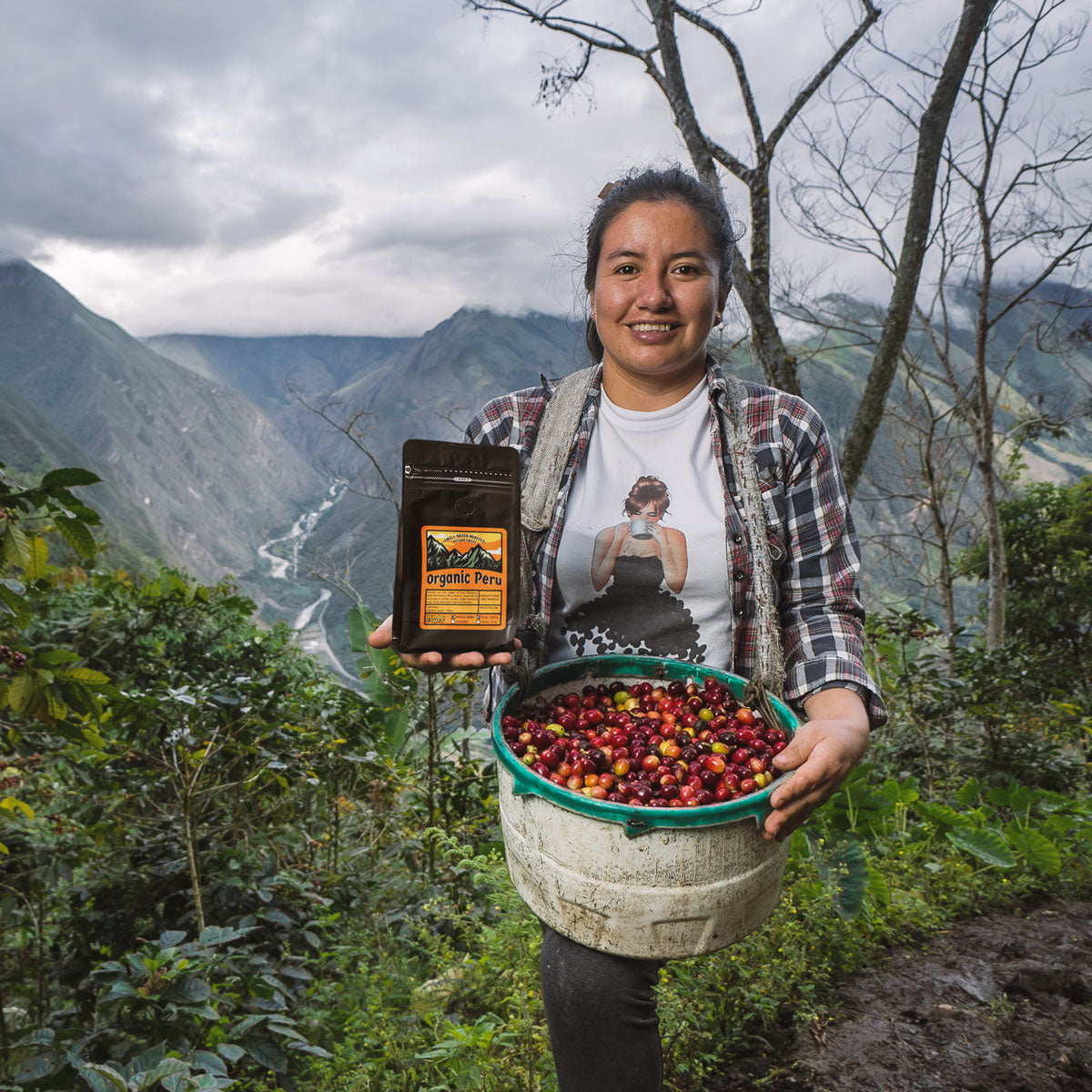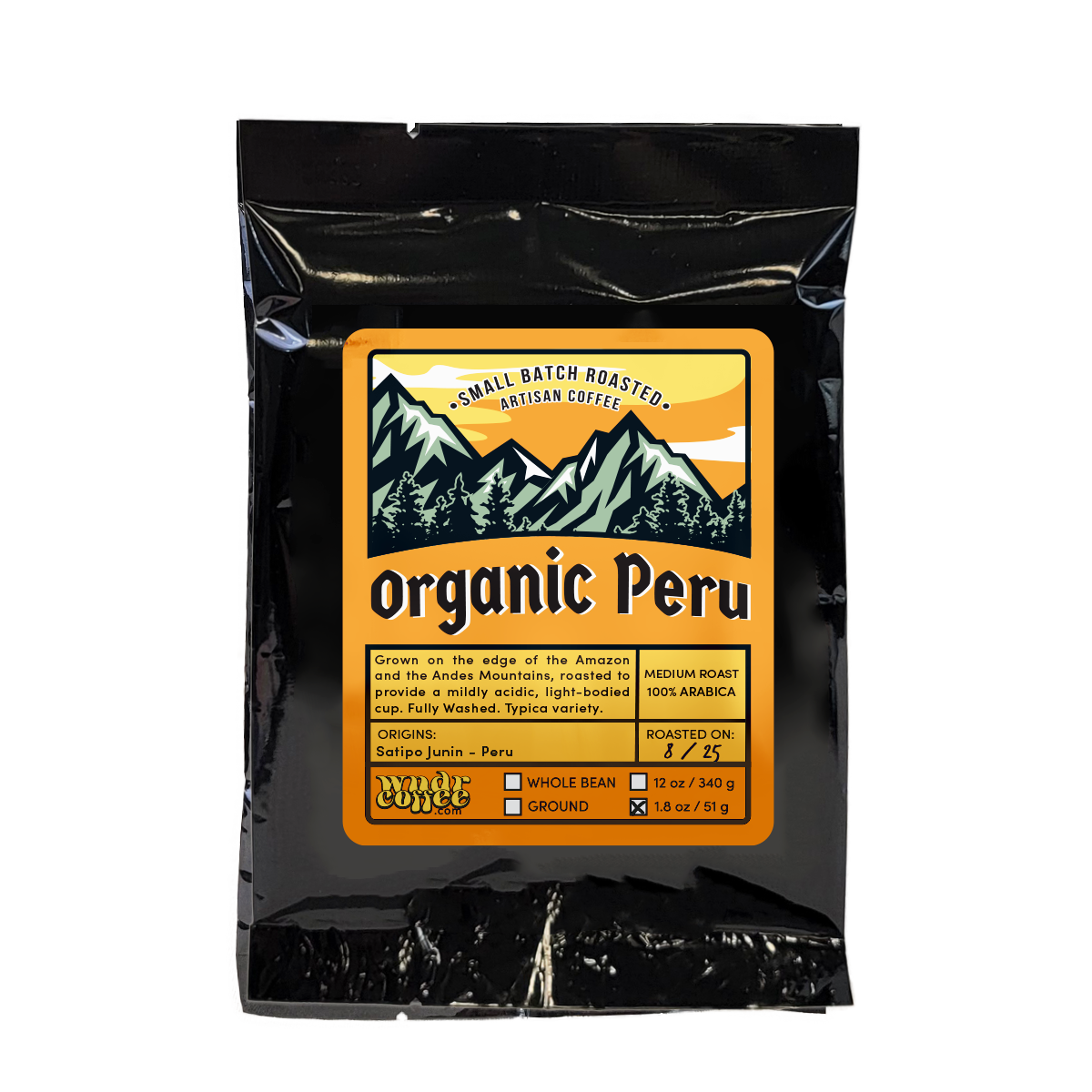South America
Peru - Washed Organic - Satipo Junin - South America
Peru - Washed Organic - Satipo Junin - South America
Couldn't load pickup availability
Share
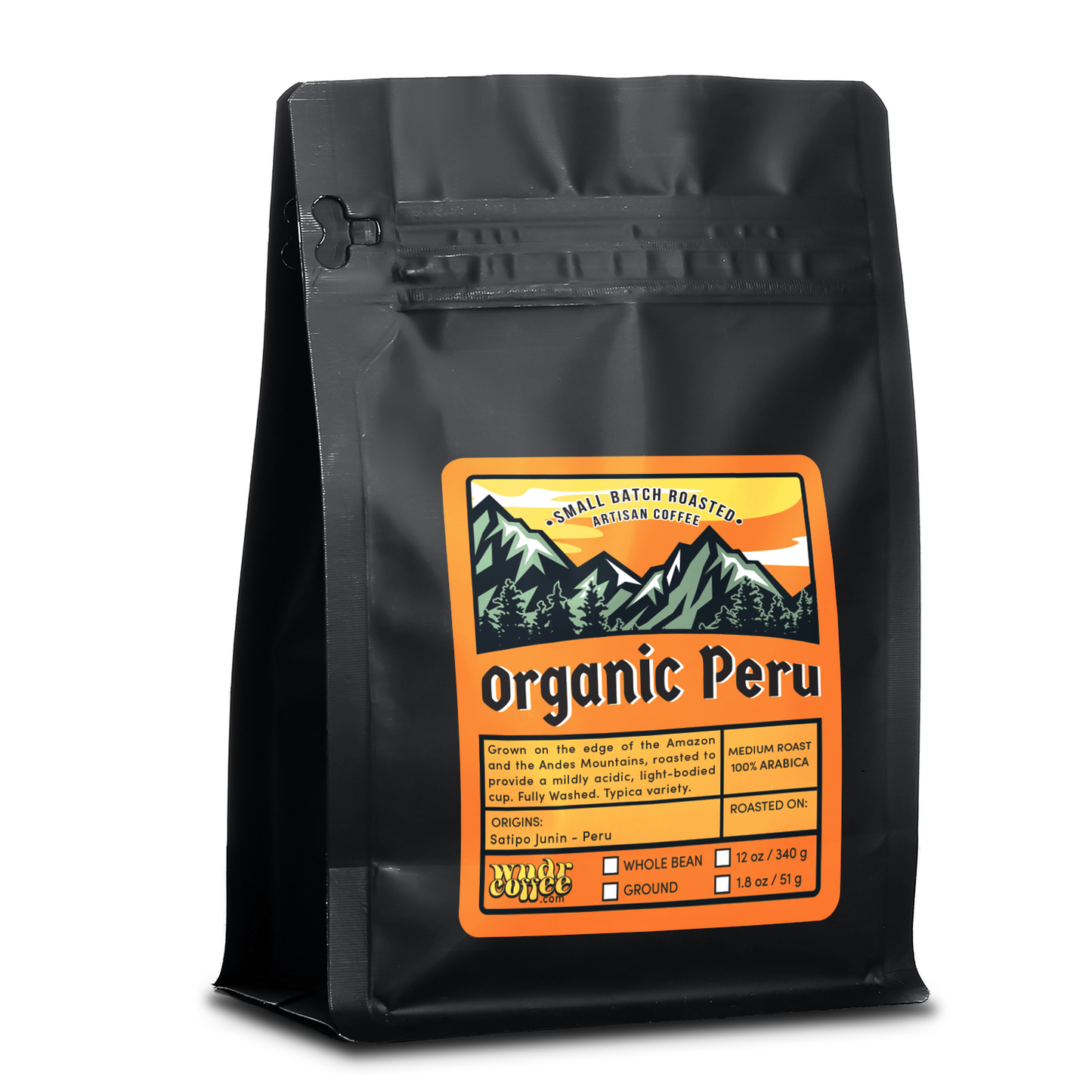
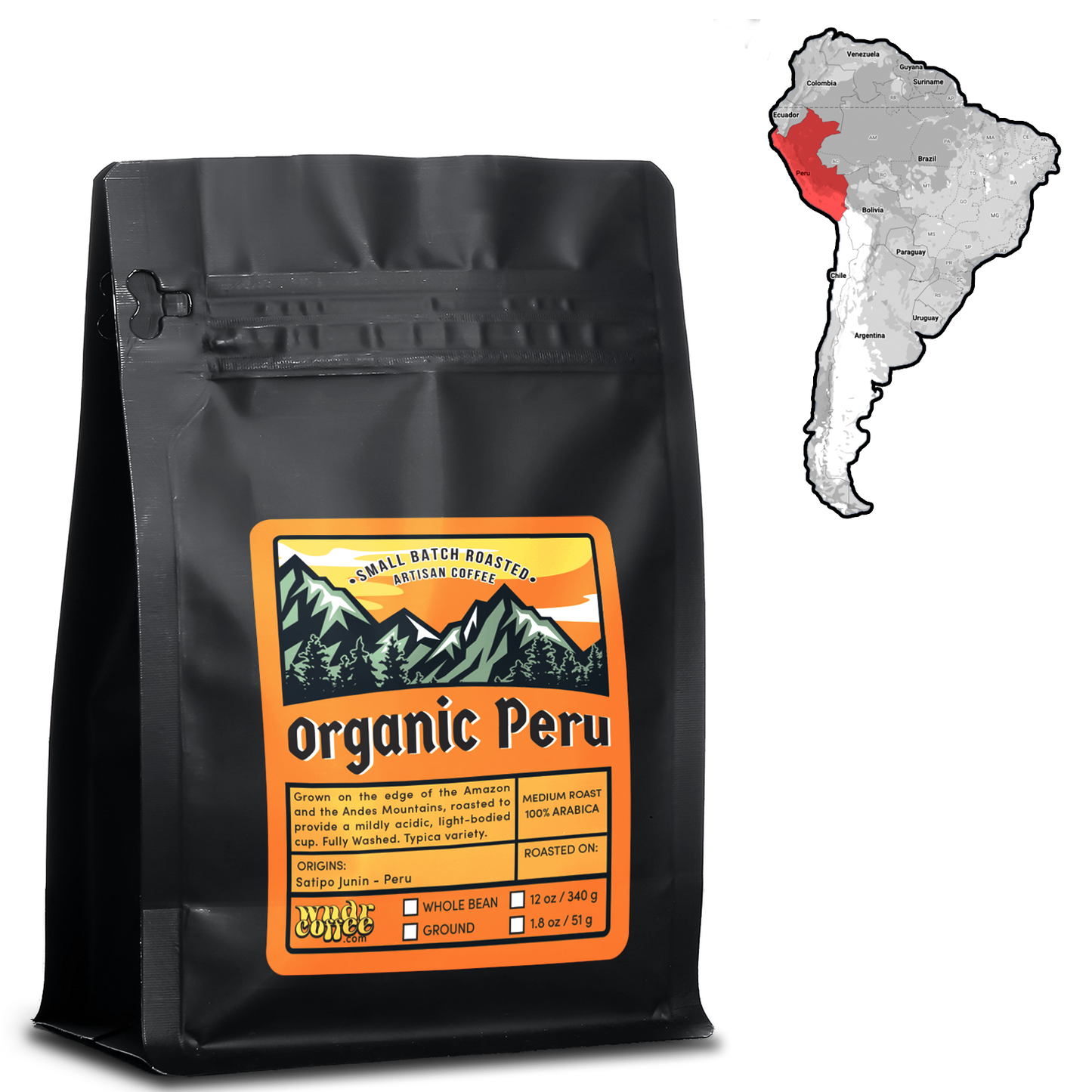
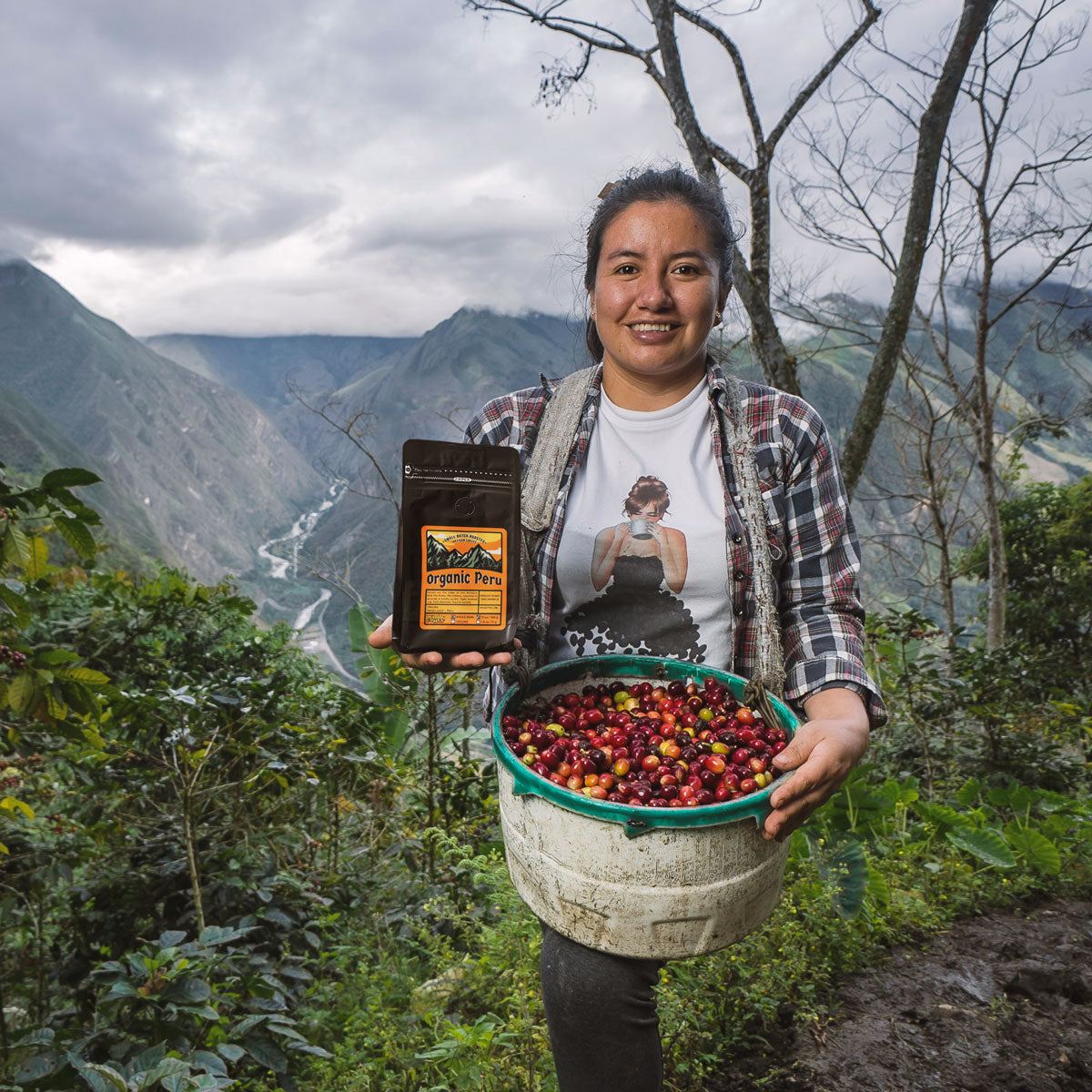
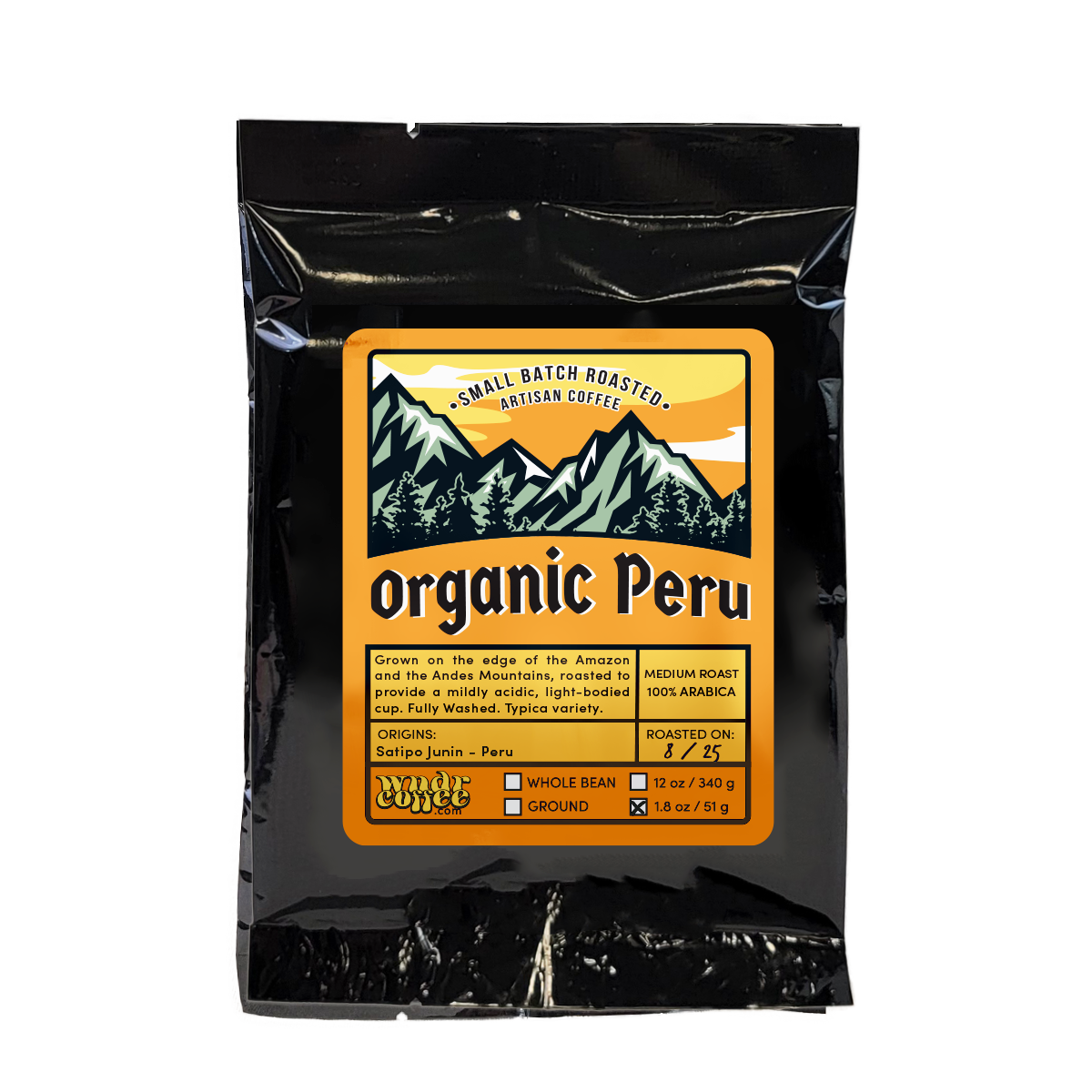
Organic Peru coffee has an incredible flavor profile and aroma with a sweet and nutty finish. Roasted to a perfect medium, these beans brew to create a well-balanced cup that has depth, smoothness, and low acidity.
Cupping Notes: Creamy, Grain, Milk Chocolate, Roasted Almond
• Growing Altitude: 1500 - 2000 meters above sea level
• Variety: Typica
• Process: Fully Washed
• Region: Satipo Junin
Certified Organic
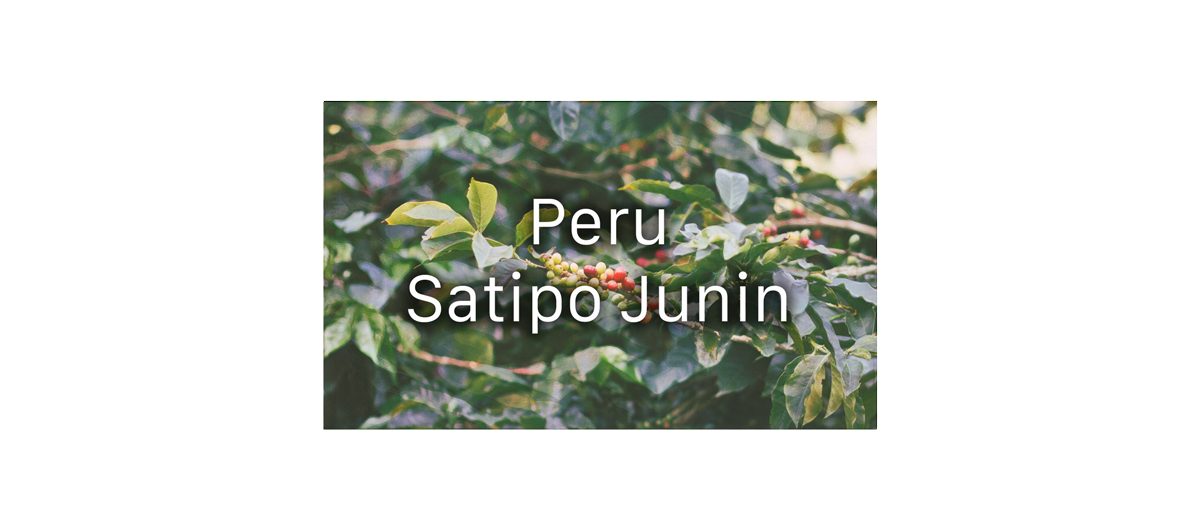
In 1897, the Belgian consul stationed in Lima, Peru, reported that “the coffee of Peru is delicious,”. That very year, coffee exports soared to over 20,000 bags, nearly tripling the 7,000 bags exported in 1894. However, the dawn of the 20th century marked the pinnacle of Peruvian coffee exports for that era. By 1913, exports had dwindled to 9,000 bags. It would have been challenging to foresee on the cusp of WWI that, for most of the subsequent century, Peru would rank among the top 10 coffee-producing nations globally, even occasionally rising to the number 5 position.
The country is now burgeoning success in the specialty coffee industry as a foremost supplier of organic coffee.
Satipo Province is the largest and easternmost province in theJunín Region, located in the central Amazon rainforest of Peru. Its capital is the town of Satipo.
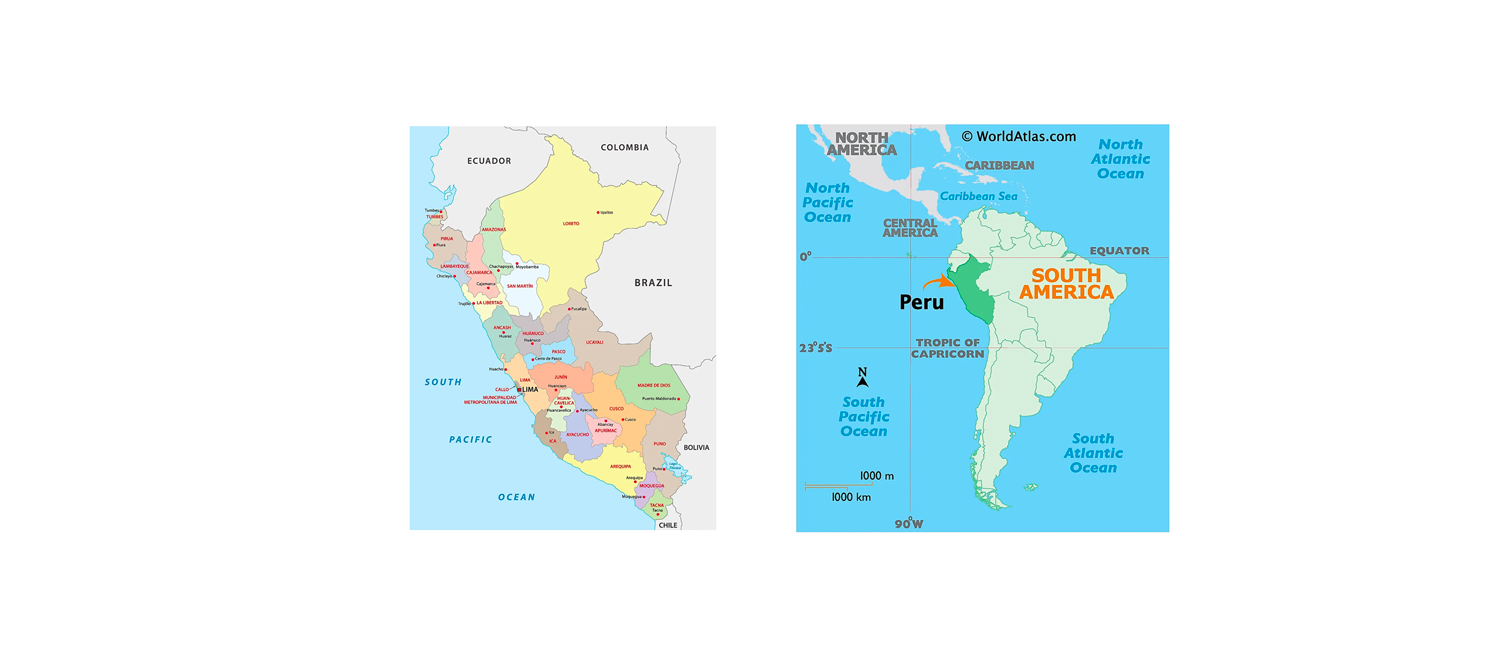
Peru is made up of a wide variety of landscapes, from long beaches to high mountains, from the desert to the largest rain forest. In the north, the second highest mountain rage, the Andes, goes through Cajamarca department and converges with the Amazon, creating complex and diverse orographies and microclimates. Cajamarca’s inter-Andean valleys have hosted coffee crops for more than 200 years and concentrate almost 43% of the total Peruvian coffee production, not only because of its vast lands but because of an ancient coffee tradition that goes back to the XVIII century, when the first coffee crops were brought in and started to be nurtured by the many generations of producers in the region. Coffee has been part of their lives for so long that their inhabitants’ experiences and learnings are inextricably linked to it.
